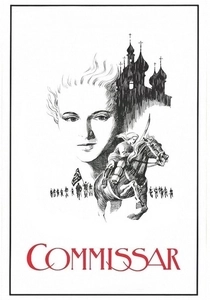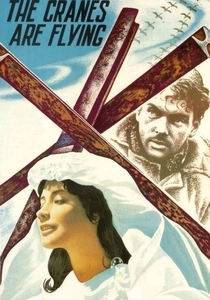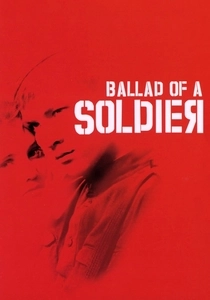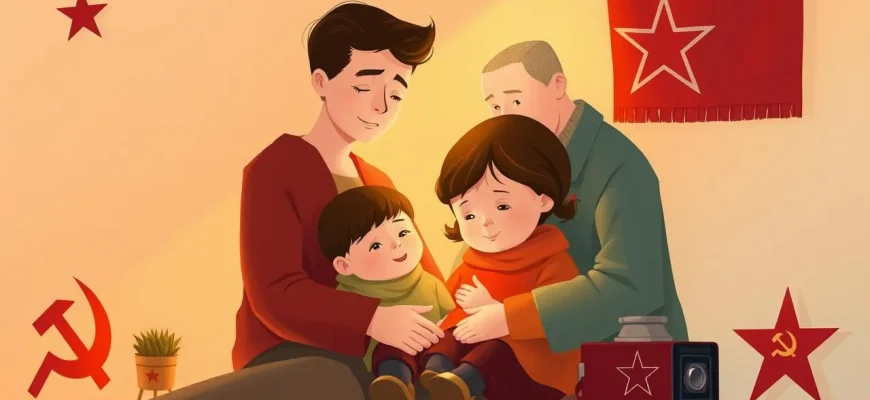Soviet cinema has always had a unique way of capturing the essence of human relationships, particularly the intricate dynamics between parents and children. These films not only provide a window into the cultural and social fabric of the Soviet Union but also resonate with universal themes of love, sacrifice, and understanding. Here's a curated list of 10 Soviet films that beautifully explore the theme of parenthood, each offering a different perspective on this timeless bond.

The Commissar (1967)
Description: A pregnant commissar is forced to stay with a Jewish family, leading to an unexpected bond between her and the family, particularly with the mother figure.
Fact: The film was banned in the Soviet Union for 20 years due to its sensitive portrayal of Jewish life.
 Watch Now
Watch Now 
Father of a Soldier (1964)
Description: A touching tale of an old peasant, Giorgi, who travels to the front lines to find his son, a soldier in WWII. It's a story of paternal love, duty, and the sacrifices parents make for their children.
Fact: The film was inspired by a true story, and its director, Revaz Chkheidze, was awarded the USSR State Prize for this work.
 Watch Now
Watch Now 
The Childhood of Maxim Gorky (1938)
Description: This biographical film about the early life of Maxim Gorky focuses on his relationship with his grandmother, who plays a pivotal role in his upbringing.
Fact: It was the first part of a trilogy about Gorky's life, with the other parts released in 1939 and
 30 Days Free
30 Days Free 
The Cranes Are Flying (1957)
Description: This film tells the story of Veronika, whose fiancé Boris goes to war, leaving her to navigate life's hardships alone. It's a poignant exploration of love, loss, and the enduring bond between parents and their children during wartime.
Fact: The film won the Palme d'Or at the Cannes Film Festival in 1958, making it one of the first Soviet films to achieve such international acclaim.
 30 Days Free
30 Days Free 
The Ballad of a Soldier (1959)
Description: A young soldier, Alyosha, is granted a short leave to visit his mother, but his journey home becomes a series of encounters that reveal the depth of his character and the sacrifices of war.
Fact: The film was nominated for an Academy Award for Best Original Screenplay.
 30 Days Free
30 Days Free 
The Ascent (1977)
Description: While not exclusively about parents, this film features a powerful scene where a mother sacrifices herself to save her son, highlighting the extreme lengths parents will go to protect their children.
Fact: Larisa Shepitko, the director, tragically died in a car accident shortly after the film's release, leaving behind a legacy of profound cinematic storytelling.
 30 Days Free
30 Days Free 
The House I Live In (1957)
Description: This film explores the life of a family living in a communal apartment, focusing on the relationship between a mother and her son, highlighting the challenges of raising a child in a shared space.
Fact: It was one of the first Soviet films to delve into the complexities of communal living post-WWII.
 30 Days Free
30 Days Free 
The Return (2003)
Description: Although technically post-Soviet, this film captures the essence of Soviet storytelling with its narrative about two brothers who go on a journey with their long-lost father, exploring themes of fatherhood and reconciliation.
Fact: The film won the Golden Lion at the Venice Film Festival, marking a significant achievement for Russian cinema.
 30 Days Free
30 Days Free 
The Irony of Fate (1975)
Description: While primarily a romantic comedy, the film subtly explores the theme of parental expectations and the desire for independence, especially through the protagonist's relationship with his mother.
Fact: It has become a New Year's Eve tradition in Russia, watched by millions every year.
 30 Days Free
30 Days Free 
The Mirror (1975)
Description: Andrei Tarkovsky's masterpiece interweaves memories, dreams, and reality, with a strong focus on the relationship between a son and his mother, reflecting on the impact of parental influence.
Fact: The film includes archival footage of the Spanish Civil War, blending personal and historical narratives.
 30 Days Free
30 Days Free 








